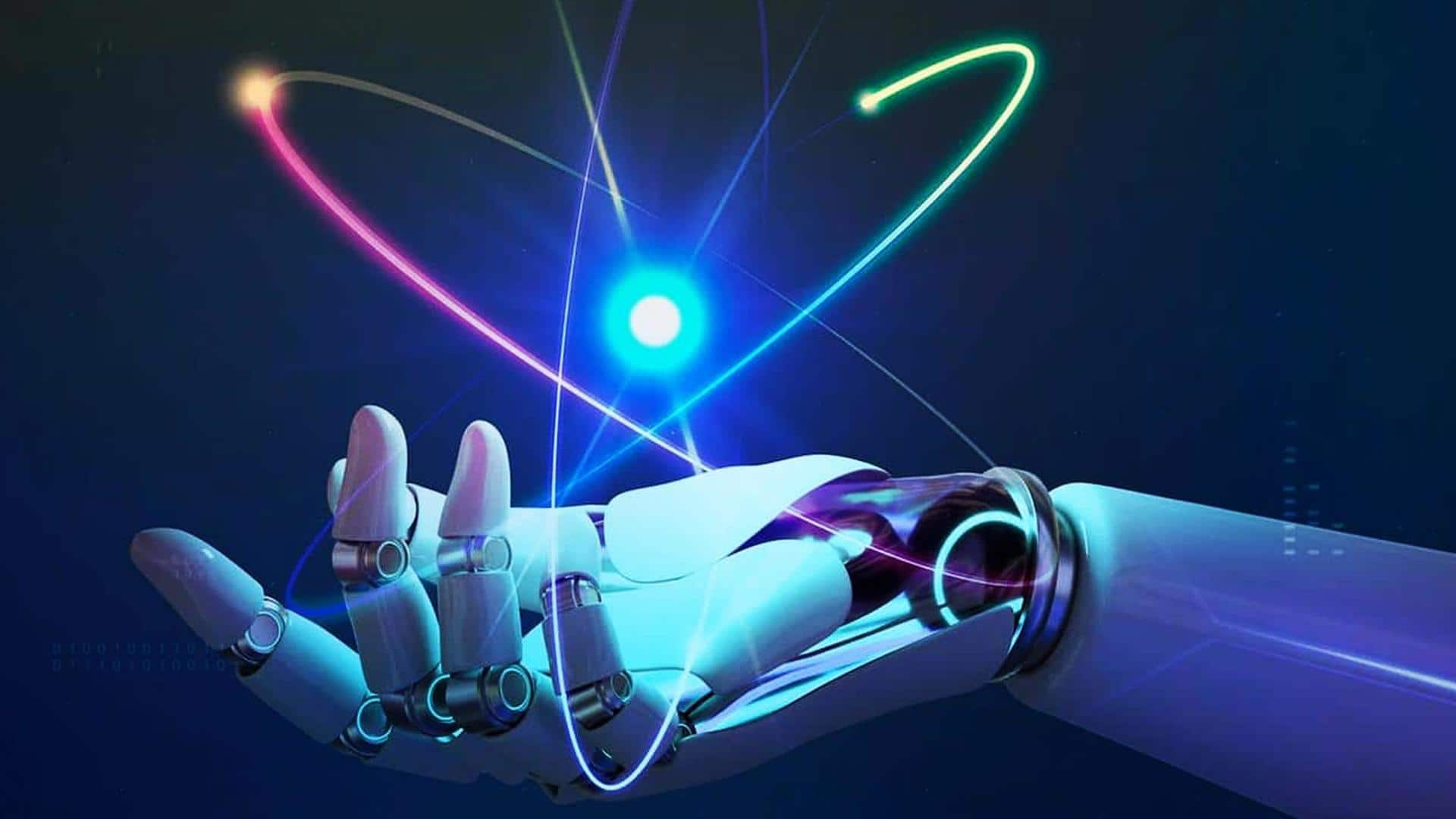
What exactly is organoid intelligence and how significant is it
What's the story
Scientists from John Hopkins University have come up with organoid intelligence (OI), where lab-grown brain cells act as 'biological hardware.' There's no denying that artificial intelligence has accomplished several feats from diagnosing medical conditions such as breast cancer to the discovery of exoplanets. OI seems to be a step ahead and could potentially make faster, more efficient, and more powerful computers in the future.
Context
Why does this story matter?
AI has been truly transformative in several aspects and the tech world only seems to be getting better. The latest OI technology has been long in the making, for almost two decades now. Scientists hope it could soon become a reality and will expand the capabilities of modern computing, along with creating new fields of study.
Detail
What are brain organoids?
Brain organoids are a type of lab-grown cell culture. While most cell cultures are flat, organoids have a three-dimensional structure. This improves the culture's cell density 1,000-fold, implying neurons can forge several more connections. They are not 'mini brains', but share crucial aspects of brain function and structure like neurons and other brain cells which are vital for cognitive functions like learning and memory.
Official words
Human brains are better than computers at learning
If computers are considered smarter, why are scientists still looking at human brains? There is a reason behind that. "While silicon-based computers are certainly better with numbers, brains are better at learning," said Thomas Hartung, who is spearheading the work. For instance, consider AlphaGo, the AI that beat the world's number one Go player in 2017. It was trained on data from 160,000 games.
Facts
The human brain is also energy efficient
A person would have to play five hours a day for more than 175 years for gaining experience worth 160,000 games. But the human brain has superior learning capabilities and it is also energy efficient. For reference, the amount of energy spent training AlphaGo is more than what would be required to sustain an active adult for a decade.
Memory
The human brain can store about 2,500TB of information
Brains also have a tremendous capacity to store information, estimated to be 2,500TB. "We're reaching the physical limits of silicon computers because we cannot pack more transistors into a tiny chip. But the brain is wired completely differently," added Hartung. "It has about 100 billion neurons linked through over 1015 connection points. It's an enormous power difference compared to our current technology."
Current work
Current brain organoids have to be scaled up for OI
The current brain organoids will have to be scaled up for OI. At present, brain organoids contain 50,000 cells which will have to be increased to 10 million. Researchers are also looking for ways to communicate with organoids and will incorporate tools from various scientific disciplines, such as bioengineering and machine learning. Ultimately, scientists predict that OI will integrate several stimulation and recording tools.
Information
"Biocomputing is an enormous effort of compacting computational power"
"Computing and artificial intelligence have been driving the technology revolution, but they are reaching a ceiling," said Hartung. "Biocomputing is an enormous effort of compacting computational power and increasing its efficiency to push past our current technological limits."
Implications
OI will have significant implications for medicine
One of the most important uses of OI will be in medicine. Brain organoids can be produced from adult tissues, thanks to a technique developed by Noble Laureates John Gurdon and Shinya Yamanaka. Scientists can grow personalized brain organoids from skin samples of patients suffering from neural disorders, such as Alzheimer's, and can study how genetic causes, medicines, and other factors influence such conditions.
Information
OI development will be done in a "socially responsible manner"
The most natural concern with OI is about ethicality. Even as OI is in its primitive stage, scientists are mindful of the concerns and seek to develop OI in an "ethical and socially responsible manner."